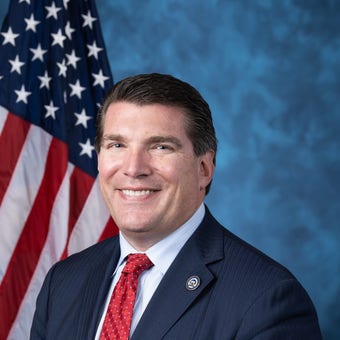Sen. Scott on proposed minimum wage increase: Killing millions of more jobs is ‘not common sense’
Tim Scott, R-S.C., argues the Biden administration needs to avoid eliminating jobs in the middle of the pandemic.
Over the past several weeks, the Biden administration has laid out the first pieces of its new agenda for the American people, including the promise of a $15 federal minimum wage.
This is one of many proposals taken from the "California model," and it has noble intentions – to address income inequality and make sure that no American working 40 hours a week lives below the poverty line.
Unfortunately, by increasing the federal minimum wage, President Biden is attempting to address the symptom of income inequality rather than the cause, which would ultimately ensure that many Americans in low-income jobs are no longer able to work at all.
Economists are clear that income inequality is the result of a multitude of factors: globalization, technological advancement, the efficient employment of capital, and changing institutions, to name a few. Attempting to address income inequality without taking on these root issues is the equivalent of putting a Band-Aid on a bullet wound.
The Congressional Budget Office recently concluded that raising the minimum wage to $15 will cause 1.4 million Americans to lose their jobs in the next several years. That is substantially more than the number of people that would be lifted out of poverty by this well-intentioned but ill-considered policy. For these workers, the real minimum wage will be zero.
More from Opinion
- Sen. Ernst & Lukas: COVID and women – their careers, businesses at risk if we don't reopen soon. Here's how
- Dr. Marty Makary: CDC's new COVID school guidelines are scientifically flawed and our kids will pay the price
- Tim Graham: New York's nursing home deaths and Andrew Cuomo, crumbling media darling
In California, where a $15 minimum wage is already in place, we are on track to lose 400,000 jobs by 2022, according to the Employment Policies Institute. A federal increase in minimum wage of this size would result in a similar flight of jobs to other countries or the elimination of jobs altogether due to automation.
At a time when our national unemployment has only just begun to recover from the economic pain of COVID-19 lockdowns, jeopardizing our recovery and eliminating American jobs is an unacceptable outcome. According to the CBO analysis, many of the Americans left unemployed by the pandemic would simply see their jobs never return.
Beyond this, every state is unique. California on average has a 38% higher cost of living than the average American city. Average home prices in Los Angeles are over $800,000 while the median home cost in Des Moines is just $173,000. Similarly, a $15 per hour wage in Mississippi would be the equivalent of making $35.74 per hour in Washington, D.C.
Raising the minimum wage is certainly not a new idea nor is it unique to the COVID-19 pandemic, and it should not be treated as such.
A one-size-fits-all federal policy cannot support our communities as well as the locally tailored approach we already use. It is worth noting that 29 states already have minimum wages higher than the federal floor of $7.25, with nine of those reaching a $15 minimum under state law in the coming years.
What is further concerning about President Biden’s proposal is that it comes as part of an already-complex COVID-19 relief package rather than as a stand-alone bill.
Raising the minimum wage is certainly not a new idea nor is it unique to the COVID-19 pandemic, and it should not be treated as such. If our nation truly has need to raise the minimum wage long-term, it should be considered independently instead of lumped in with an already oversized emergency relief package.
I was a member of the California Legislature when our state’s $15 minimum wage was adopted in 2016. While I did not support the outcome, at least our legislative body gave this critical issue the robust debate it deserves.
I have sent a letter signed by 22 of my colleagues requesting that Biden heed the overwhelming economic data on this issue. Each of us firmly believes that every American worker should have the opportunity to achieve the American Dream.
We also believe that income inequality is one of the definitive challenges that will face our generation and that it will require a sustained effort from all levels of government and from lawmakers on both sides of the aisle to address.
CLICK HERE TO GET THE OPINION NEWSLETTER
But we know from the analysis of experts and the firsthand results in California that a $15 minimum wage increase would only serve to harm American workers and add additional stress to our already struggling economy.
Instead, let us work together to address the root causes of income inequality. Let us rebuild our economy and support our unemployed workers in finding new employment. Let’s bring back jobs and find ways to reopen our communities. Or at a minimum, let us have a real debate based on the facts.











































